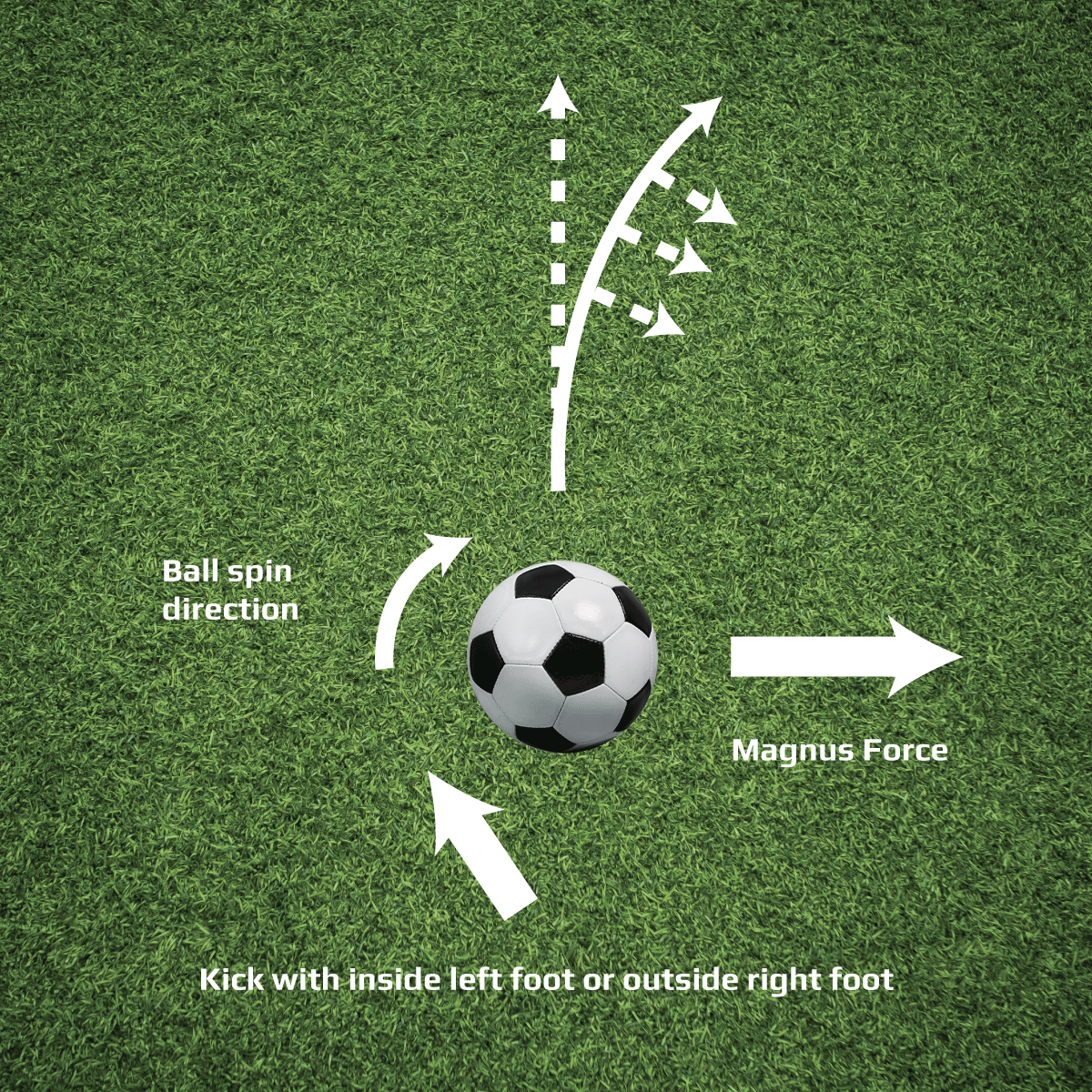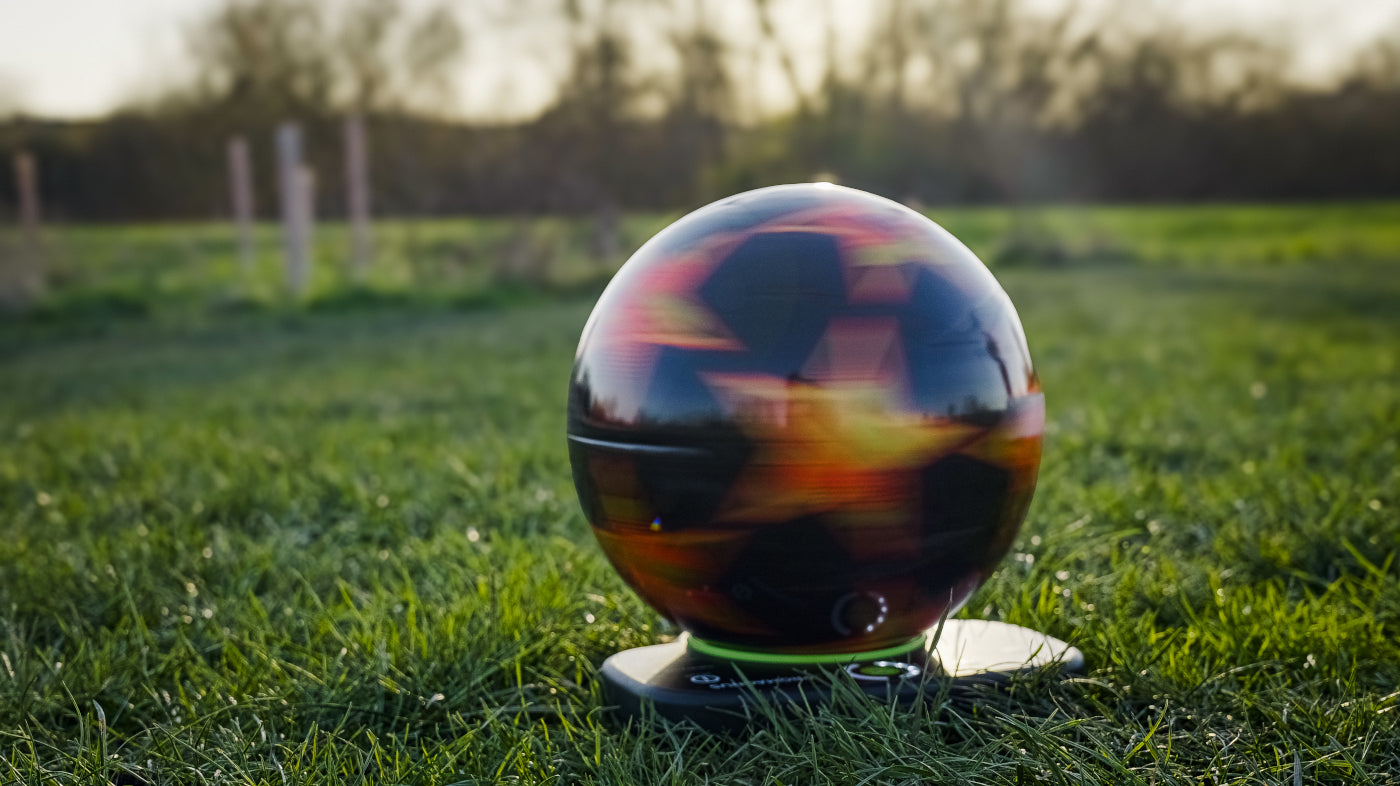

The Magnus Force Effect
In 1853, Physicist H.G Magnus experimented and investigated the effect responsible for creating curved trajectories specifically in tennis, golf and artillery shells. The effect found that when a spinning ball was struck in such a way in the same direction of the spin or creating the spin, there is a natural curling of the ball’s trajectory.
A Spinning Football which is rotating as it travels through the air, creates a low-pressure zone on one side and a high-pressure zone on the other. The pressure difference between these zones is Crucial in generating a force that pushes the ball in the direction of the low-pressure zone.
Because of the Magnus Effect, the path of the spinning ball gets deflected from its original path and the high pressure creates a push and creates a curved trajectory of the ball. The Magnus Effect is a fascinating phenomenon, by understanding the Magnus Effect and using it to a football players advantage, can produce amazing football play on the pitch and can create Football legends in the game. Training with the ProMagnus will ensure Corners, Penalties, Free Kicks and Passing play in the game will take on a whole new dimension.

The Spin
The Ball spin element is crucial to creating a curl in the ball trajectory. To date in professional football, Learning to spin a football is up to the player and having the ability to curve the ball makes exciting and progressive game play. In professional football, on average, a direct free-kick has a 6% probability to be converted. 1 in 17 attempts translates to a goal. There is little dedicated training for free kicks as every player is different. Coaches expect players to practise on their own. The highest conversion of free kicks taken in the top 5 European leagues since 2016/17 is 17%. A goalkeeper is 40% less likely to save a ball that has been curled as opposed to a ball that travels in a straight line. PROMAGNUS™ helps any footballer vastly improve their kicking technique in as few as 80 kicks. The device provokes and amplifies the senses triggering muscle memory to induce accelerated learning. Player’s improve free kick techniques resulting in a 46% increase in bending/curling performance as proven by Queens University, Belfast